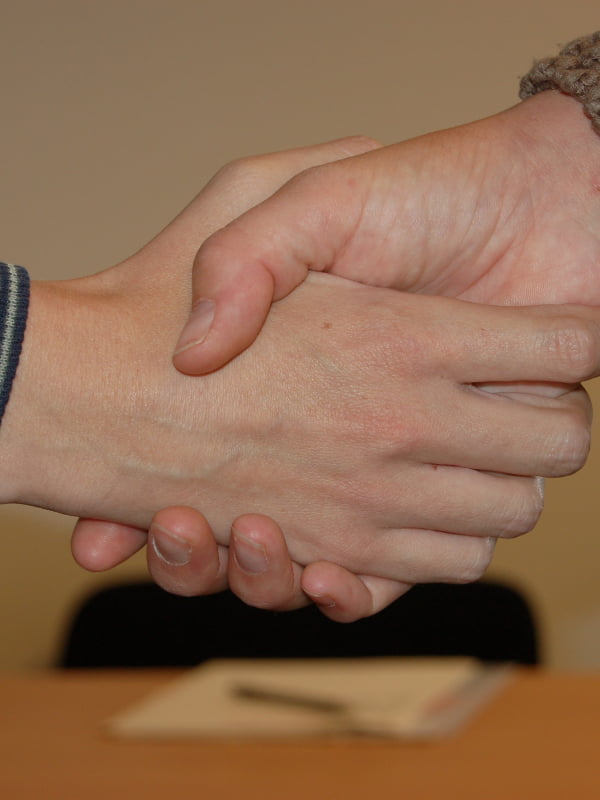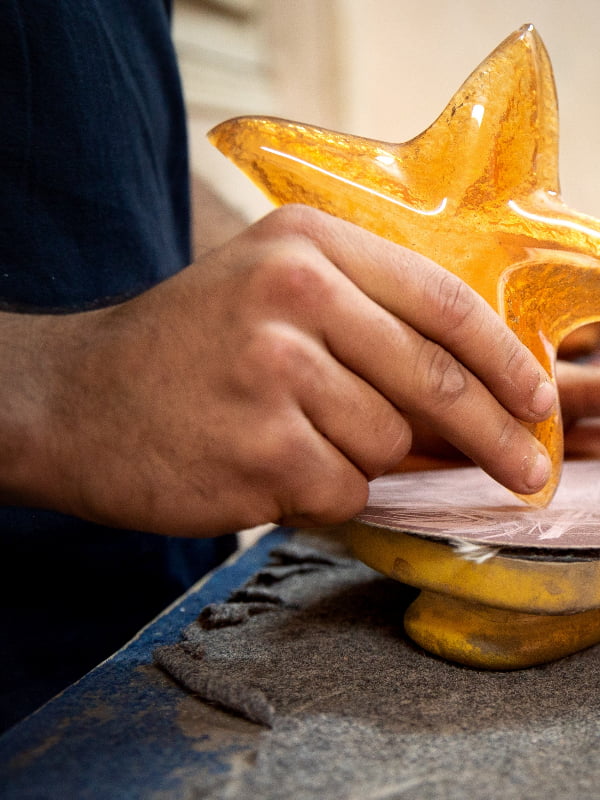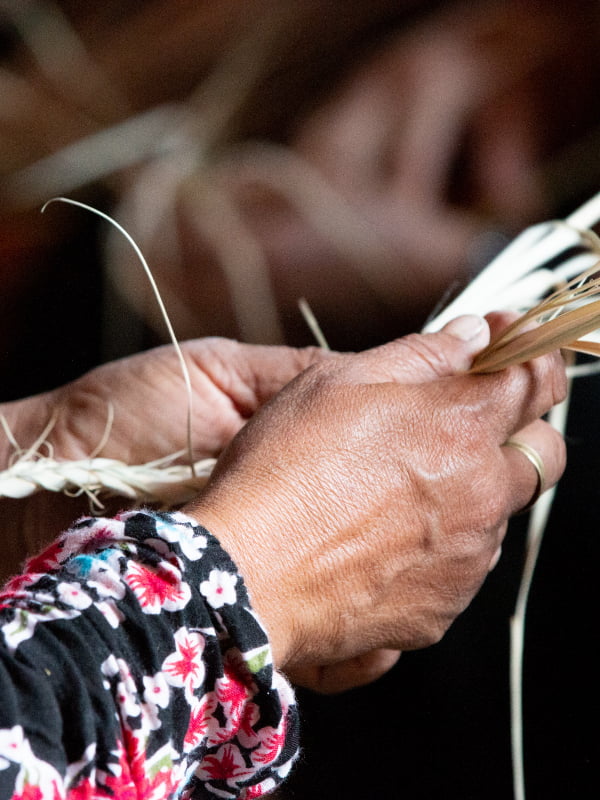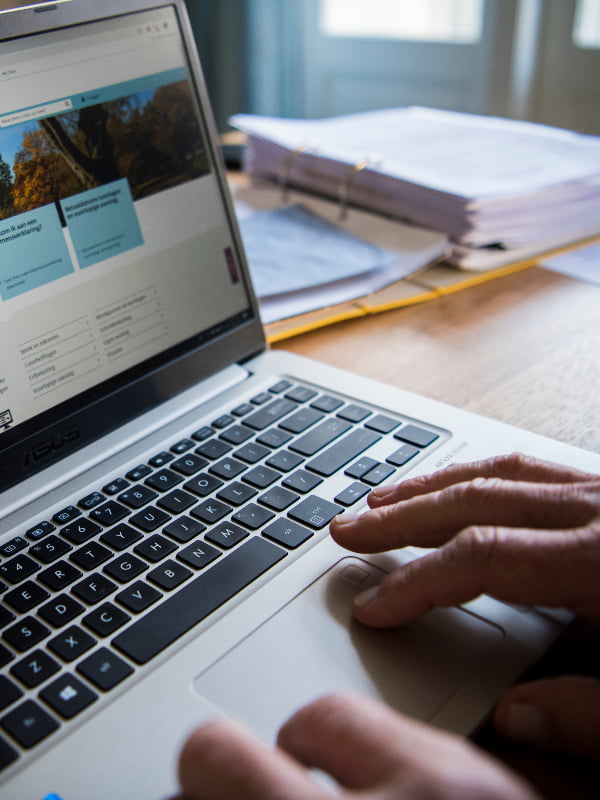What is clean cooking?
On this page, we look at clean cooking, what it means, which fuels are clean, the impact on people and the climate, what we are doing to help, and much more.
Clean cooking meaning
When we talk about clean cooking, we refer to people using cleaner fuels and energy-efficient modern stoves.
Around 4 billion people do not have access to modern energy cooking services. Instead, they cook on traditional biomass or polluting fuels. Replacing these practices with clean cooking solutions has the potential to reduce smoke emissions in kitchens and the amount of biomass needed. This will lead to a reduction in deaths from smoke-related illnesses. Household air pollution causes more than 4 million deaths every year. This is more than the deaths from malaria, tuberculosis and HIV/AIDS combined. Clean cooking also reduces the damage caused to the environment and climate change.
Clean cooking has been on the development agenda for decades. But only recently has the topic become a major priority on the global development agenda as part of Sustainable Development Goal (SDG) 7: Affordable and clean energy. The Energising Development programme (EnDev) has been a pioneer in the clean cooking sector since 2005. The programme supports market development in many countries in Asia, Africa and Latin America. It focuses on local entrepreneurship and capacity building throughout the sector.
In recent years, the global clean cooking sector has changed significantly. It has moved away from an artisanal-focused sector only offering traditional and improved cookstoves. It is now a modern, professional and diverse sector, providing a broad range of solutions to diverse consumer groups. Overall, the sector has developed in business model innovation, finance solutions and product development.
The Netherlands Enterprise Agency & clean cooking
We are working to improve access to clean cooking via several subsidies and programmes.
SDG 7 Results
SDG 7 Results aims to provide 2 million low-income households with access to modern, renewable energy services and clean cooking solutions. The programme offers results-based financing incentives to private-sector companies to reduce the short-term risks of developing a market for renewable energy in partner countries and the associated costs of innovation.
Energising Development (EnDev)
Achieving universal access to energy requires profitable business models. EnDev is a multi-donor and multi-implementer programme. It helps national governments create an environment that enables the supply and demand of sustainable energy. EnDev tackles energy poverty with a market-based approach that focuses on consumers' needs, increasing the capacity of local SMEs. EnDev operates in more than 20 partner countries and has a specific focus on sub-Saharan Africa.
SEE-Clean Cooking
With SEE-Clean Cooking, the Netherlands Enterprise Agency introduces a new private-sector approach to promote clean, affordable cooking solutions. These solutions use sustainable fuels, including biogas, ethanol, pellets and electricity. The programme will carry out activities in partnership with the EnDev programme between 2021-2026. The programme has 2 components: African Biodigester Component (ABC) and the Higher Tier Cooking Component (HTCC).
African Biodigester Component (ABC)
ABC is a 5-year programme (2021-2026). The programme helps develop and strengthen demand, supply and the enabling environment to create sustainable biodigester markets in 5 African countries: Kenya, Uganda, Burkina Faso, Mali and Niger.
ABC aims to facilitate the construction and installation of 50,000 small-scale biodigesters by the end of 2026. This will result in energy access for at least 250,000 people. It will also reduce yearly CO2 equivalent emissions by over 180,000 tonnes.
Higher Tier Cooking Component (HTCC)
HTCC is a 5-year programme (2020-2026) that aims to further strengthen the supply side of the clean cooking sector. It does this by helping small and medium-sized enterprises improve their business operations, get access to finance for scale and innovation and by helping build an enabling environment in support of clean cooking. HTCC aims to reach 600,000 people in Cambodia, Bangladesh, Uganda and Ethiopia.
How can I contribute to access to clean cooking?
You can contribute to access to clean cooking in many different ways. If you have an innovative project idea or would like to get involved in a project, contact our advisors.
Would you like to raise awareness? Share our user stories and information. For the latest news and user stories, subscribe to our monthly Newsletter. And follow us on social media:
The current clean cooking situation
In low and middle-income countries, most of the energy households use is for cooking. This makes cooking the most energy-intensive household activity. Worldwide, 4 billion people still lack access to clean, efficient, convenient, safe, reliable and affordable cooking energy. People use polluting open fires and inefficient stoves. This is either due to habit, lack of alternatives or cost. These inefficient cooking methods are harmful to health and delay economic and social development in low and middle-income countries. Examples of polluting and inefficient cooking methods include 3-stone woodfires or simple clay and metal stoves, which use wood or charcoal.
Clean cooking solutions have evolved over the years and become much more modern. Clean cooking solutions involve the devices and fuel types. There is still debate on how to exactly define the cleanliness of a particular cooking method. Also, people use a mix of cooking methods. The World Bank introduced the Multi-Tier Framework for cooking (MTF). This framework looks at the cooking solutions households use from a technical and contextual perspective. The MTF classifies 6 different levels of cooking solutions. It only considers the top 2 (tier 4 and 5) modern and clean. Tiers 2 and 3 are transitional. Other frameworks include consumer behaviour as well and vary slightly in classification.
This illustration explains the different access levels for cooking facilities.
- Tier 0-1 is no access
- Tier 2-3 is access to improved cooking services
- Tier 4-5 is access to modern energy cooking services.
A household whose cooking practices meet Tier 2 or 3 is considered as being in transition with access to improved cooking services.
A household is considered to have access to modern energy cooking services when their cooking practices meet Tier 4 or above.
What are clean cookstoves?
Clean cookstoves come in all shapes, sizes, and designs. Their goal is to reduce the amount of polluting and harmful fuels used to cook food and the emissions emitted during cooking. Clean cookstoves are made to ensure maximum efficiency. In some cases, they completely eliminate the use of biomass fuels such as firewood and charcoal or other polluting fuels such as coal and kerosene.
A wide range of cookstove technologies exists, with varying impacts on emissions. According to the World Health Organization (WHO), any type of cookstove can be clean if its emissions meet WHO Guidelines. Only a few solutions meet the cleanest tier 4 and 5 (ISO) standards. Currently, clean options according to WHO include:
- LPG stoves,
- electric stoves using hot plates or induction,
- electric rice cookers,
- ethanol stoves,
- biogas and specialised biomass stoves.
Transitional solutions
In certain geographical areas or situations, the cleanest solutions are currently harder to reach or too expensive for households. In these cases, improved cookstoves that burn biomass more efficiently may provide some health benefits as a temporary or transitional solution. These solutions do not meet the WHO recommended levels. But inclusive solutions, leaving no one behind, are very important on the clean cooking agenda. Temporary solutions allow a much larger group of people to benefit quicker from improved cooking conditions.
Reaching large groups of customers with improved cooking solutions contributes to solving the clean cooking challenges that we face. Through SDG 7 Results, we support organisations that offer improved cookstoves. SDG 7 Results also supports clean solutions like ethanol or pellet gasifiers. To continue reaching as many people as possible, we must make the affordable solutions cleaner and the cleanest solutions affordable.
Modern and clean cooking fuels are fuels with very low levels of polluting emissions when burned. Examples include biogas, LPG, electricity, ethanol, natural gas, and solar power (BLEENS). Pellets used in specialised biomass stoves can also be a clean fuel.
Is biogas a clean fuel?
Yes, biogas is a clean fuel. Also, if it is produced at scale, it can generate electricity which people can use for things other than cooking.
Biogas is produced in a biodigester. This is a closed, airtight container in which organic material like kitchen waste, cow dung, crop residues is fermented. This process produces biogas, a mixture of methane, carbon dioxide, and other trace gases. Using organic waste to make biogas leads to better waste management and a cleaner environment. It also contributes to climate change mitigation. Another benefit is the organic fertiliser that it produces. This improves soil health and increases agricultural yields, improving food security and nutrition. We support biogas market development through the Africa Biodigester Component (ABC) in Kenya, Uganda, Mali, Burkina Faso and Niger.
Is Liquified Propane Gas (LPG) a clean fuel?
Yes, LPG is a popular clean and modern cooking fuel. It is a naturally occurring by-product of crude oil refining and natural gas processing. Unlike natural gas, LPG can be easily liquified under moderate pressure and transported in cylinders or canisters. It is easy to transport and store, making distribution easier. Still, developing a dense distribution infrastructure is expensive. In some countries, LPG is widely accessible in cities for those who can afford it.
Burning LPG emits CO2, but emissions are very low. Still, there is debate on this fuel as it is derived from fossil fuel sources, making it non-renewable.
Is electricity a clean fuel?
Yes, electricity is the cleanest cooking fuel when used. However, generating electricity can affect the environment and climate depending on the source. When electricity is generated from renewable sources such as the sun, wind and water, it is clean.
1.8 billion people have access to basic electricity services but still cook with biomass.
- Load shedding;
- weak grids;
- affordability of electricity;
- tradition, perceptions; and
- a lack of suitable cooking appliances;
all act as barriers to scaling up electricity for cooking. Still, electricity grids are expanding quickly and are becoming more reliable in many areas. At the same time, mini-grids and solar home systems are extending electricity access into off-grid areas. Also, battery-supported e-cooking appliances are being developed. In the future, these will allow people to cook when they want, not just when high-quality power is available.
Is ethanol a clean fuel?
Yes, ethanol is a clean fuel produced from biomass sources. It is a renewable source of energy. Ethanol can be made from a variety of low-cost resources such as:
- sugar crops like sugarcane, sugar beet, sweet sorghum and fruits;
- starch crops like corn, wheat, rice, potatoes, cassava, sweet potatoes and barley; and
- lignocellulosic biomass such as wood, straw and grasses.
These plant resources are fermented to produce ethanol. Although it is a renewable energy source, the resources needed for ethanol are not always sustainable. Using unsustainable resources can have a negative impact on the environment.
Over the years, ethanol has mainly been used in niche settings. This is due to the complexity of establishing reliable supply chains. Recently, companies like KOKO Networks have changed this. KOKO has established a dense network of ethanol fuel points in Nairobi, Kenya. Soon it will expand to new areas. SDG 7 Results supports KOKO Networks in its goal to expand its customer base in Greater Nairobi, Kenya.
Is natural gas a clean fuel?
Yes, natural gas is a clean and modern cooking fuel. However, it is a fossil fuel. Natural gas is extracted from oil and gas reserves and transported through a network of pipelines to consumers. Natural gas is popular in high-income countries and urban areas of some low and middle-income countries. But large investments are needed for the installation of a distribution system. This means it is only a possible solution in certain contexts.
Are biomass pellets a clean fuel?
Yes, biomass pellets are a clean fuel if they come from a renewable source of biomass. They produce low emissions and have a high energy value. Recently, biomass pellet stoves have received more attention. Still, establishing the supply chain for pellet production and distribution is challenging. The Netherlands Enterprise Agency supports the development of biomass pellets and stoves via several programmes.
Energy access got a prominent place on the development agenda in 2015. This was when the United Nations committed to Sustainable Development Goal 7: Affordable and clean energy. Over the past years, the clean cooking sector has evolved quickly. Still, today, nearly 4 billion people do not have access to modern energy cooking services. But there are big differences globally in the types of access people have. The population has grown faster than the number of people switching to clean cooking solutions.
Developing countries in Asia
The majority of those without access to clean cooking live in countries in Asia. There, 1.6 billion people lack clean cooking facilities. In fact, 7 times more people lack clean cooking access than lack electricity in this region. Still, the latest developments are promising; 670 million people have gained access since 2010.
India
In India, around 85% of households had access to LPG by March 2020. The majority of those without an LPG connection said the connection or fuel costs are too expensive. Still, the use of LPG as the main cooking fuel in Indian households increased from 28.5% in 2011 to 71% in 2020. Despite increased LPG access, 38% of Indian homes in mainly rural areas combine the use of LPG with traditional solid fuels. This jeopardises the health benefits. The combined fuel use is mainly due to high cylinder refill prices. In India, SDG 7 Results supports Greenway Grameen. This organisation supplies improved cookstoves to remote households.
China
Around 544 million people, about one-third of the population, still rely on solid fuels like coal and biomass for cooking and heating in China. Many of these households are in rural areas and will likely continue to use solid fuels. Switching to modern energy alternatives is more expensive for them than using solid fuels. Still, China's official statistics show diversification in the energy sources the rural population uses for cooking. From 2006 to 2016, many Chinese farmers shifted from relying on grass, firewood and coal to a good variety of cooking fuels. Also, natural gas infrastructure development is helping reduce the use of biomass and kerosene.
Several other developing countries in Asia have also been promoting clean cooking. These countries use different methods to advance and promote clean cooking, depending on the national context.
Sub-Saharan Africa
There is still a huge lack of access to clean cooking in sub-Saharan Africa. Access only slightly increased from 15% in 2015 to 17% in 2018. Since 2015, only 25 million people have gained access to clean cooking in the region.
By 2018, the number of people without access to clean cooking had increased to 900 million. This means that population growth outpaced provision efforts. Sub-Saharan Africa is the only region where the number of those without access continues to rise significantly. Through different programmes, we support the development of clean cooking markets in Sub-Saharan Africa.
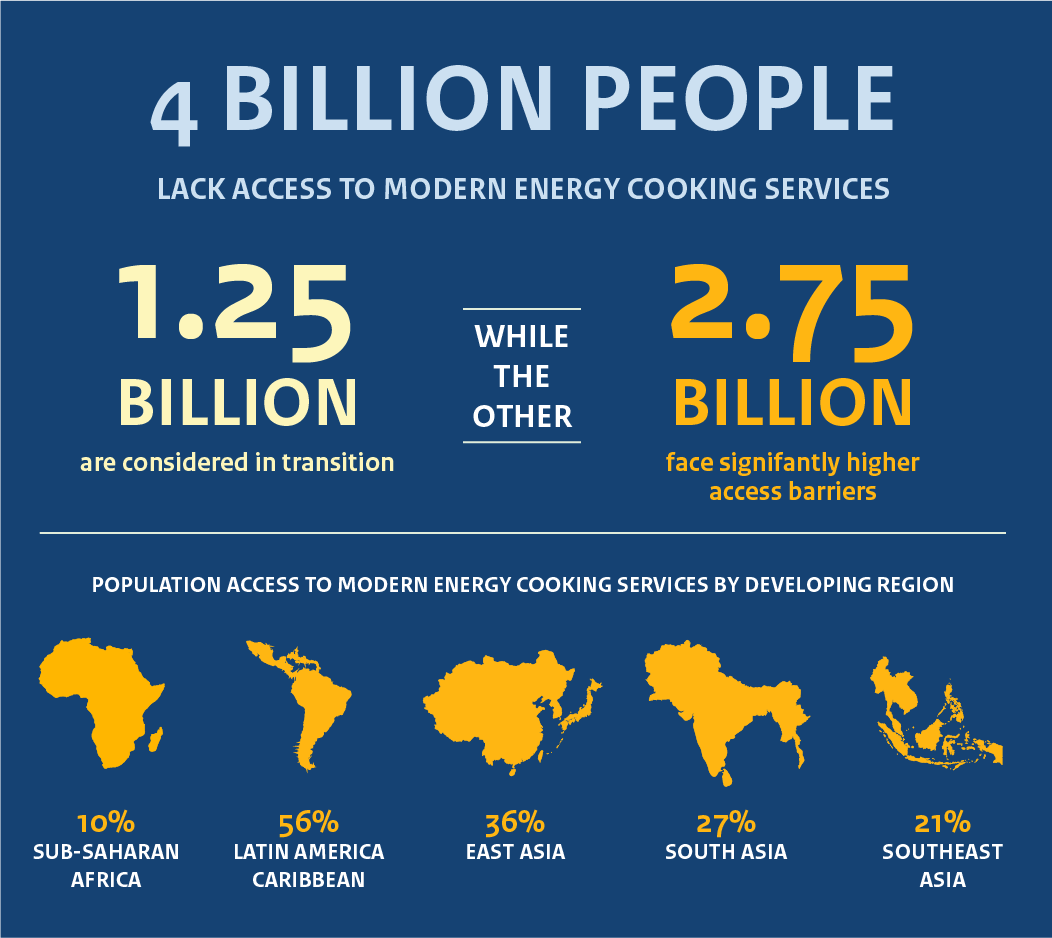
4 miljard mensen hebben geen toegang tot moderne energie om te koken.
1,25 miljard mensen zitten in een overgangsfase, terwijl de overige 2,75 miljard mensen te maken hebben met veel hindernissen voor toegang tot moderne energie om te koken.
Toegang van de bevolking tot moderne energie voor koken, per ontwikkelingsregio:
- Sub-Sahara Afrika, 10%
- Latijns-Amerika Caribisch gebied, 56%
- Oost-Azië, 36%
- Zuid-Azië, 27%
- Zuidoost-Azië, 21%
Switching to clean cooking transforms lives. It improves health, protects the climate and environment, empowers women and helps consumers save time and money.
Worldwide, air pollution is the leading environmental health risk. This risk is substantial for families without access to clean cooking. Every year, 4 million people, mainly women and children, die prematurely from smoke-related illnesses. Cleaner, modern stoves and fuels can reduce emissions and the risk of household air pollution and smoke-related diseases. Clean cooking can save lives.
Creating time for other tasks
In many countries, households use wood and charcoal as their main cooking fuel. Collecting wood is an especially time-consuming task for women and children. This is time that could be used for income-generating activities and education. Collecting wood is also physically demanding and can put women in vulnerable positions. Clean cooking provides a solution to these problems. It empowers women and allows children to spend time on their education.
Reducing deforestation and forest degradation
Besides this, clean cooking is important as it reduces deforestation and forest degradation. Wood is often harvested at a rate quicker than the growth of trees. The production of charcoal is especially problematic as it is the main fuel source in many rapidly-expanding urban and peri-urban areas. Switching to clean cooking methods reduces the negative environmental impacts of fuelwood and charcoal.
Saving money
If everyone switched to clean cooking methods, it would save the world a lot of money. According to a World Bank report, the current situation is costing more than US$2.4 trillion each year. This is due to the negative impacts polluting fuels and cookstoves have on health, the climate and gender equality.
Clean cooking:
- Reduces deforestation
- Saves households time and money
- Creates jobs
- Reduces greenhouse gas emissions, helping the climate
- Empowers women and reduces their workload, giving them time to focus on business, work and rest
- Reduces household air pollution, improving health
Introducing clean cooking has a significant positive impact on climate change. Globally, 4 billion people depend on polluting, open fires or inefficient stoves to cook their food. Inefficient burning of fuels such as wood, charcoal, coal, crop residue, dung and kerosene over open fires and inefficient stoves produces climate-warming gases and pollutants. Cooking this way releases greenhouse gases (GHGs) like carbon dioxide and short-lived climate pollutants (SLCPs).
Fuelwood
Worldwide, nearly 2.4 billion people rely on fuelwood for cooking. It is the most commonly used solid fuel. Burning fuelwood produces CO2 emissions. Also, around 30% of the fuelwood harvested globally is unsustainable as it is harvested quicker than the growth of trees. This leads to forest degradation and reduces forests' ability to absorb CO2. Fuelwood accounts for 2% of climate-damaging emissions worldwide.
Black carbon
The most significant SLCP that traditional cooking practices release is black carbon or soot. The black carbon particles absorb sunlight and warm the atmosphere. Black carbon is an important contributor to climate warming. Per unit of mass, the warming impact of black carbon is up to 1,500 times stronger than CO2.
Globally, 25% of black carbon emissions come from household cooking, heating and lighting. In many Asian and African countries, household cooking accounts for 60% to 80% of black carbon emissions. Black carbon only stays in the atmosphere for a few days. This is much shorter than carbon dioxide or other climate change pollutants. So, removing black carbon from dirty cooking provides a possible quick win in the effort to combat climate change.
Clean cooking contributes to the SDGs in many ways.
SDG 1: No poverty
Clean cooking is a basic need for a healthy and productive life. It saves households time and money.
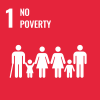
SDG 2: Zero hunger
Efficient cookstoves reduce the amount of fuel needed to cook. This helps families who have to buy or collect fuel to cook.
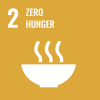
SDG 3: Good health and well-being
Clean cooking improves health by reducing the risk of household pollution and smoke-related diseases. It has a particularly positive impact on the health of women and children.
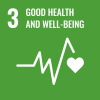
SDG 5: Gender equality
Clean cooking empowers women and reduces their workload, giving them time to focus on business, work and rest.
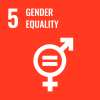
SDG 7: Affordable and clean energy
Clean cooking provides access to affordable clean energy. It is necessary to address energy poverty and ensure sustainable energy security for billions of people.
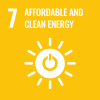
SDG 8: Decent work and economic growth
Clean cooking creates more time for income-generating activities and inclusive economic growth. The sector itself also provides job opportunities.
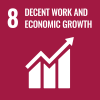
SDG 11: Sustainable cities and communities
Clean cooking reduces household air pollution, resource inefficiency and climate vulnerability.
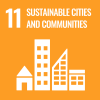
SDG 13: Climate action
Clean cooking reduces black carbon and greenhouse gas emissions.
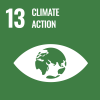
SDG 15: Life on land
Clean cooking reduces deforestation and forest degradation.
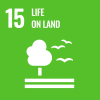
- Ministry of Foreign Affairs
